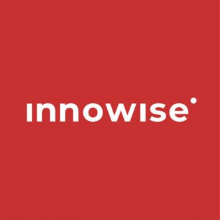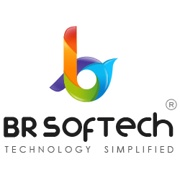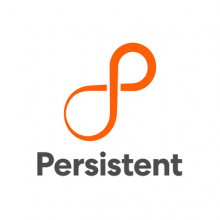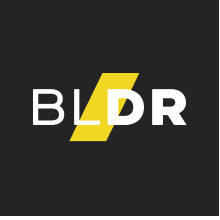
There are 8 Companies in Hamburg
that provide Angular Development Services!
Out of all tech and IT hubs Germany has, Hamburg is probably the only city that took the news and media industry so seriously. According to Hamburg.com, the city has more than 110K employees and 23K companies in this field, which massively surpasses other tech hubs in Germany, such as Berlin or Munich.
Discover Top IT Companies in Hamburg specialized in Angular and other related services. Find the best IT service providers for your projects.
Angular (formerly AngularJS) is a popular open-source web application framework maintained by Google and a community of developers. It's used for building dynamic, single-page web applications (SPAs) and web-based applications in general. Angular provides a structured and organized way to create complex web applications by extending HTML with additional features and enabling the development of interactive, responsive, and maintainable front-end web interfaces.
Handpicked companies • No obligation to hire • 100% risk-free
Featured Companies in Hamburg
This month, the following Angular Development companies managed to provide an outstanding service and support. It's worth taking a look.
Fire Bee Techno Services is an ISO Certified Blockchain and AI Development Company In india and across the world with 13+ years of experience.
Explore Top Angular Development Companies in Hamburg
Web, Game, Mobile App & Crypto Development Company
Concise Software. Building an integrated world.
AcumenCog was founded in year 2019 with view of delivering quality innovation and services. We have specialised programs for budding startups, we are...
Filter Angular Development Companies in Cities near Hamburg
Dive deeper and find the company you need close to you or, from a specific city you prefer. Some of the best companies come from smaller places
Find more Angular Development companies around the world
TechBehemoths is the world's most advanced and user-friendly platform to match IT Companies with real clients without hustle.
The ICT in Hamburg: General Overview
Out of all tech and IT hubs Germany has, Hamburg is probably the only city that took the news and media industry so seriously. According to Hamburg.com, the city has more than 110K employees and 23K companies in this field, which massively surpasses other tech hubs from Germany, such as Berlin or Munich.
A confirmation of these facts is the presence of tech behemoths such as Google, Yelp, Twitter, and Facebook. In addition to these companies, Hamburg is the home of Xing’s head office and also myTaxi. So we can briefly say that the city is a networking giant in the region.
Another field where Hamburg starts to grow is the gaming industry. With 4,000 jobs at 150 different companies — including Goodgame Studios, Bigpoint, and Innogames — Hamburg has earned its nickname of 'Gamecity'.
So, overall we can observe three main focus areas so far in Hamburg: News, Media, and Gaming. But in order to fully compete with other German tech cities, Hamburg has to go even further and increase its development capacities by improving the digital business ecosystem and providing enough IT infrastructure for startups and companies that choose Hamburg as a new operational center. In these regards, Michael Westhagemann, Senator for Economics and Innovation, Andreas Dressel, Senator for Finance, and Dr. Rolf Strittmatter, Managing Director of Hamburg Invest, presented plans for a "tech hub" targeting startups, young technology companies, and research in Bahrenfeld. Hamburg is funding the project with EUR 35 million from the Economic Stabilisation Programme (HWSP) launched in the wake of the corona crisis. The Ministry of Economics has earmarked EUR 10 million for other innovation programs e.g., in artificial intelligence. The hub will accommodate a mix of laboratories and offices in Science City Hamburg Bahrenfeld and in the immediate vicinity of the DESY Innovation Factory II.
Hamburg also gets really close to Berlin and Munich in terms of paychecks. According to Glassdoor, the average salary in the IT industry in Hamburg and the surrounding area reached 54K Euros, or $64K/year. It is yet one of the best salaries in Europe for this industry, but also, Hamburg is one of the most expensive cities which somehow balances the situation.
Taking into account the intentions of local authorities and the current trends, Hamburg is yet to attract more professionals and IT companies. Most of them will probably come from the higher segment as not any company can afford to relocate or open an office in Hamburg. However, those who choose to move there, will definitely provide excellent services for their clients, and improve the city’s digital notoriety.
What is Angular and what are its benefits for your projects?
Angular (formerly AngularJS) is a popular open-source web application framework maintained by Google and a community of developers. It's used for building dynamic, single-page web applications (SPAs) and web-based applications in general. Angular provides a structured and organized way to create complex web applications by extending HTML with additional features and enabling the development of interactive, responsive, and maintainable front-end web interfaces. Here are some key aspects and concepts of Angular:
-
Component-Based Architecture
-
Templates
-
Directives
-
Dependency Injection
-
Services
-
Routing
-
Observable and RxJS
-
Modules
-
Testing
-
Cross-Platform
Angular's structured approach, strong tooling, and vibrant ecosystem of libraries and extensions make it a powerful framework for building modern web applications. It is particularly well-suited for large and complex projects where maintainability and scalability are crucial.
Companies may choose Angular over other front-end frameworks for their projects for a variety of reasons, depending on their specific needs and priorities.
-
Google Backing: Angular is developed and maintained by Google. This association often gives companies confidence in its long-term support, stability, and continuous improvement. Google's involvement is seen as a sign of reliability and commitment to the framework.
-
Mature and Established: Angular has been around for a while and has a strong track record of being used successfully in large-scale enterprise projects. It has a well-defined architecture and best practices, which can be beneficial for maintaining and scaling applications over time.
-
TypeScript Support: Angular is built with TypeScript, a statically-typed superset of JavaScript. TypeScript provides better tooling, code maintainability, and catches errors at compile time, which can reduce bugs and enhance code quality, making it attractive to companies that prioritize robust code.
-
Full-Featured Framework: Angular provides a comprehensive set of tools, libraries, and features out of the box, including routing, form handling, HTTP client, and more. This can save development time and effort compared to integrating multiple third-party libraries in other frameworks.
-
Two-Way Data Binding: Angular offers powerful two-way data binding, which allows for automatic synchronization between the data model and the view. This feature can make it easier to develop interactive and responsive user interfaces.
-
Large and Active Community: Angular has a large and active community of developers and a wealth of resources, including documentation, tutorials, and third-party libraries. This can be beneficial for finding solutions to common problems and getting support when needed.
-
Enterprise-Ready: Angular provides features like dependency injection, modularity through modules, and a strong emphasis on testability. These characteristics are well-suited for building robust and maintainable enterprise-level applications.
-
Strict Coding Standards: Angular enforces a set of coding standards and best practices, which can lead to more consistent and readable code. This can be important for companies with multiple developers working on the same codebase.
-
Cross-Platform Development: Angular can be used for building both web and mobile applications. Companies looking to develop applications for multiple platforms may choose Angular for its ability to share code between web and mobile apps using technologies like NativeScript or Ionic.
-
Integration with Backend Technologies: Angular can easily integrate with various backend technologies and APIs. This makes it suitable for projects where the front end needs to communicate with different types of server-side applications.
-
Security Features: Angular provides built-in security mechanisms to help prevent common web vulnerabilities like Cross-Site Scripting (XSS) and Cross-Site Request Forgery (CSRF). This can be crucial for projects with high security requirements.
-
Ecosystem and Tooling: Angular has a rich ecosystem of tools, extensions, and IDE support, including Angular CLI for project setup and management. This can streamline development workflows and improve productivity.
Ultimately, the choice of Angular or any other framework depends on the specific project requirements, the development team's expertise, and the company's long-term goals. Companies evaluate various factors to determine which framework aligns best with their needs, resources, and priorities.







